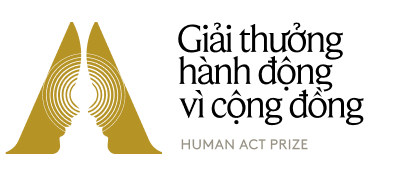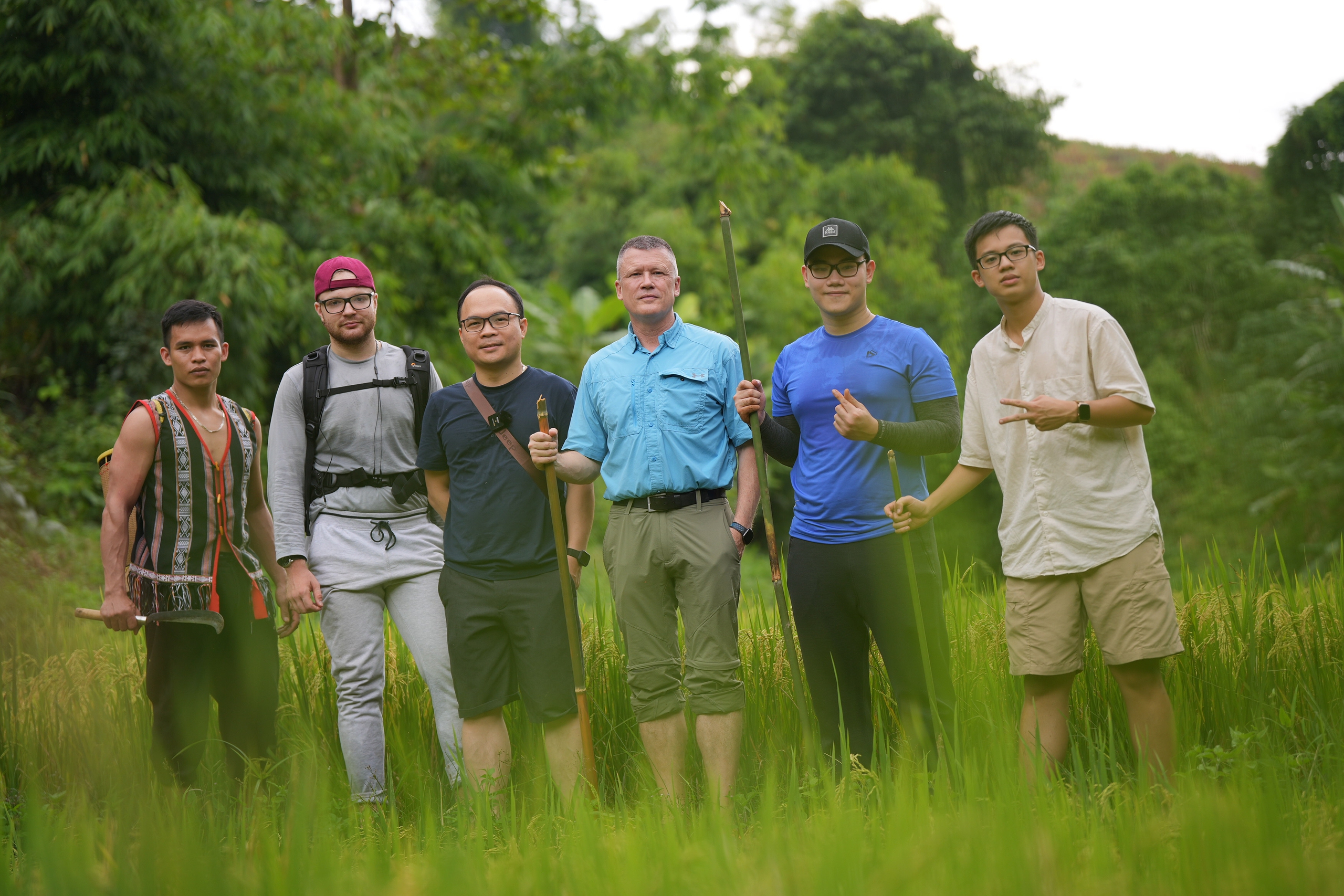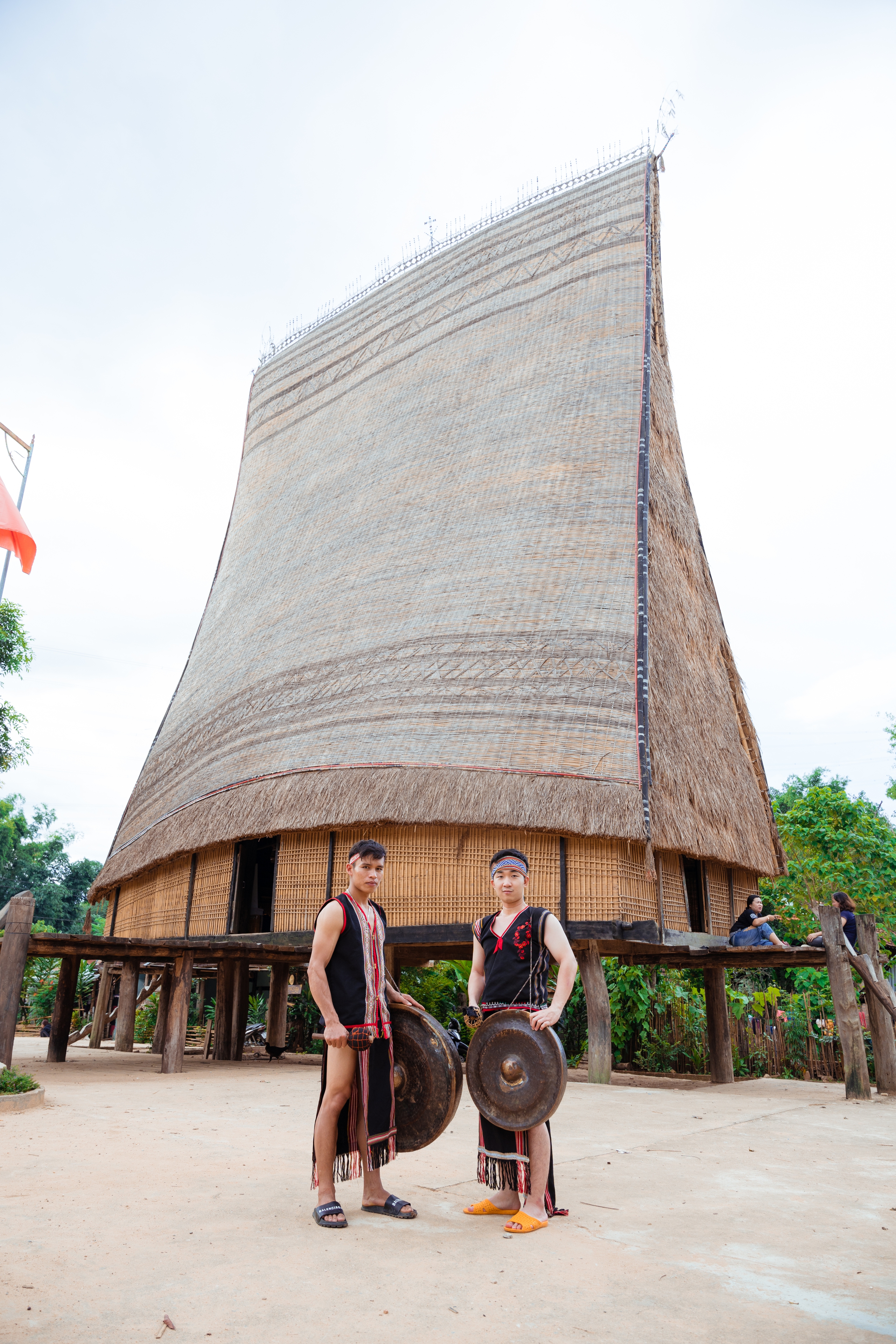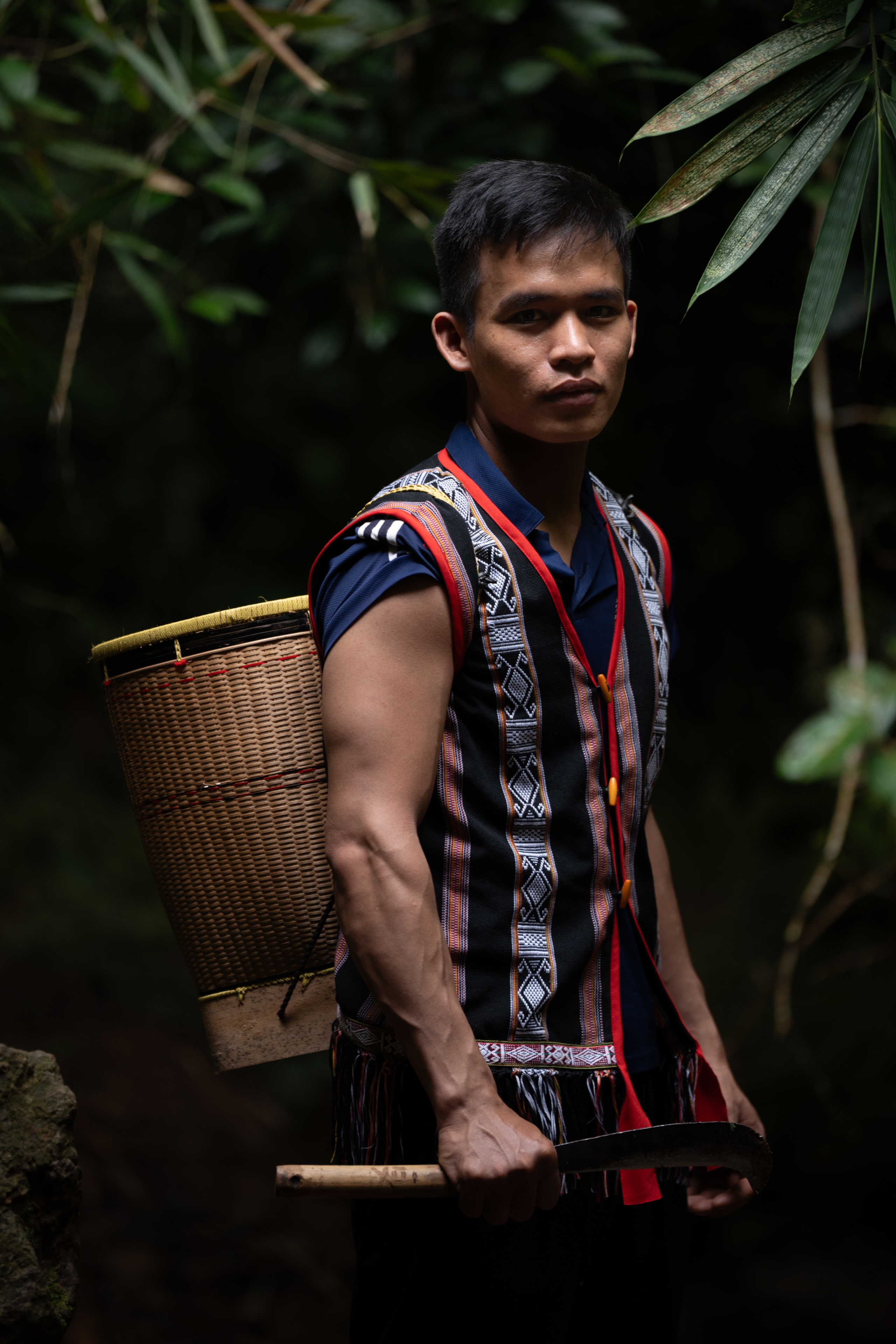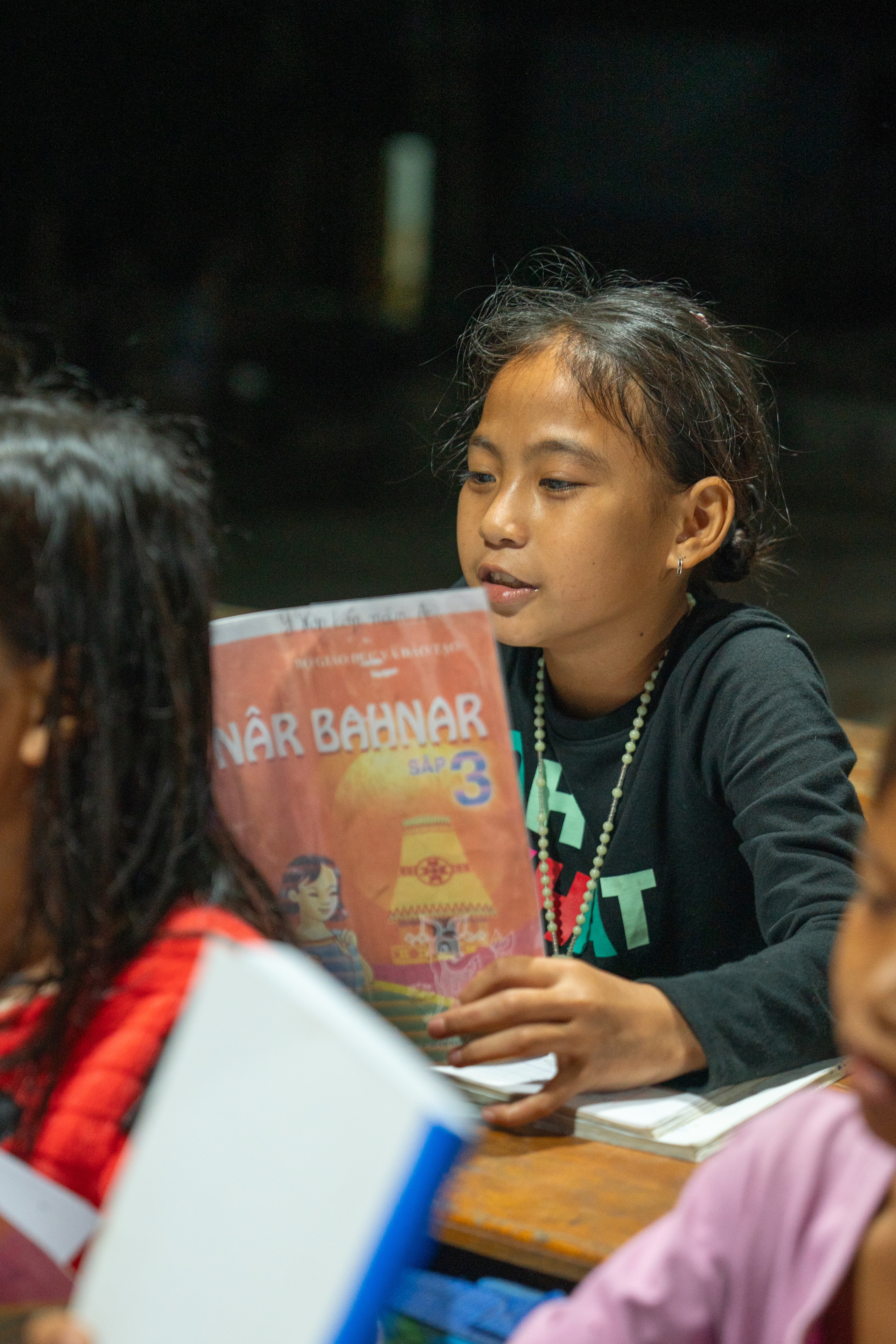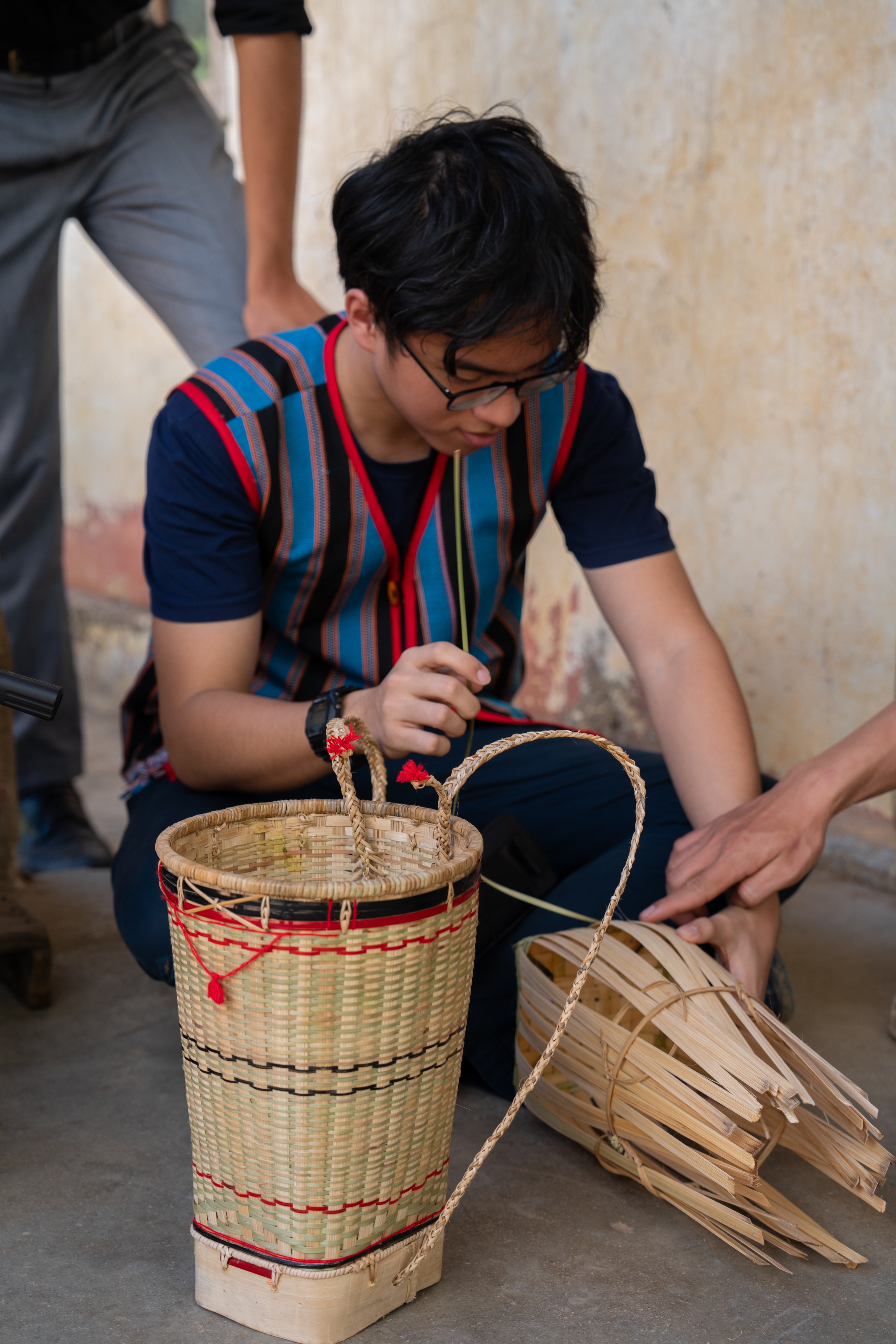Implementing agencies
-
Category
PROJECT
-
Date time
-
Field
REDUCED INEQUALITIES
According to UNESCO's warnings, half of the world's languages are at risk of disappearing by the end of this century, posing a significant threat to the global cultural knowledge base. Recognizing this risk, VinUniversity has developed the "Preservation of the Bahnar Language and Culture" project—a response to the critical need to safeguard the Bahnar language, which faces the threat of extinction as the number of speakers dwindles in Vietnam. Under the guidance and collaboration of the Bahnar community, the project addresses this urgent issue by documenting and reviving the cultural heritage of the Bahnar people.
Preserving endangered languages like Bahnar is not only vital for cultural identity but also contributes to addressing global challenges such as climate change and biodiversity loss. This is particularly significant as Vietnam is a global hotspot for biodiversity and linguistic diversity, playing a crucial role in protecting indigenous knowledge and preserving the cultural values of humanity. Therefore, the project's initiative goes beyond preserving a single community—it positions Vietnam as a leader in global cultural preservation efforts.
Part 1
Starting background of the project
Language and culture are not only means of communication but also symbols of identity, history, and knowledge for a community. However, many languages are now disappearing under the pressures of modernization and globalization, particularly those of indigenous peoples. This loss not only erodes cultural heritage but also negatively impacts climate change, deforestation, and ecological degradation. According to the United Nations, while indigenous communities account for only about 5% of the global population, they play a crucial role in safeguarding 80% of the world's biodiversity.
In Vietnam, each ethnic group possesses unique cultural values and knowledge. Among them are the Bahnar people, who primarily reside in the mountainous regions of Kon Tum. They have a long history of protecting forests and sustainably managing natural resources, showing profound respect for biodiversity.
However, the cultural heritage of the Bahnar faces significant challenges. The Bahnar language is on the brink of extinction as the number of speakers declines, threatening the loss of their historical, cultural, and environmental knowledge. Moreover, despite their invaluable lessons in natural resource protection and management, their wisdom is often overlooked amid urbanization, leading to the waste of precious human knowledge.
In response, the Bahnar Language Preservation Project was established to protect the Bahnar language and their traditional knowledge. The project also seeks to shield the Bahnar community from losing their cultural foundations and livelihoods under the pressures of urbanization. Additionally, it contributes to Vietnam's national goals of cultural revitalization and development, fostering Vietnamese identity and promoting the nation's rich traditional values to the world.
Part 2
Project innovation/ invention
The "Bahnar Language and Culture Preservation Project," implemented by VinUni, features several notable initiatives, including:
Innovative Solutions for the Bahnar People
Developing communication programs such as seminars, forums, and cultural exchange events to introduce the beauty of Bahnar culture, including music, traditional costumes, and cuisine. Conducting research on Environmental Intelligence, co-authored with Bahnar leaders. These initiatives aim to reduce prejudices and raise public awareness of the cultural values, knowledge, and life experiences of the Bahnar people.
Developing high-tech applications: A virtual museum using Virtual Reality (VR) and Augmented Reality (AR) technology to preserve valuable artifacts and educate the community about the history and culture of the Bahnar people. Additionally, the project has developed a Bahnar Speaking Dictionary application, which provides vocabulary information with examples and contexts, making it easier for users to learn and use the language.
Innovations in Teaching
The Co-Author Model between University Students and Ethnic Minority Experts: Encouraging university students and ethnic minority experts to participate in research and co-author academic papers. This unique and novel approach allows students to learn from experts while creating valuable articles that accurately reflect the realities and diverse perspectives on Bahnar culture.
Experiential Learning Methods: The project also applies experiential learning methods, enabling students to gain more knowledge from real-life situations outside the classroom. Internship programs, field trips, and interactive workshops with the Bahnar community are organized, providing students with opportunities to better understand the life, culture, and knowledge of the Bahnar people. Through this, students consolidate their knowledge, develop soft skills such as communication, teamwork, and problem-solving, and foster a sense of responsibility toward the community and the environment.
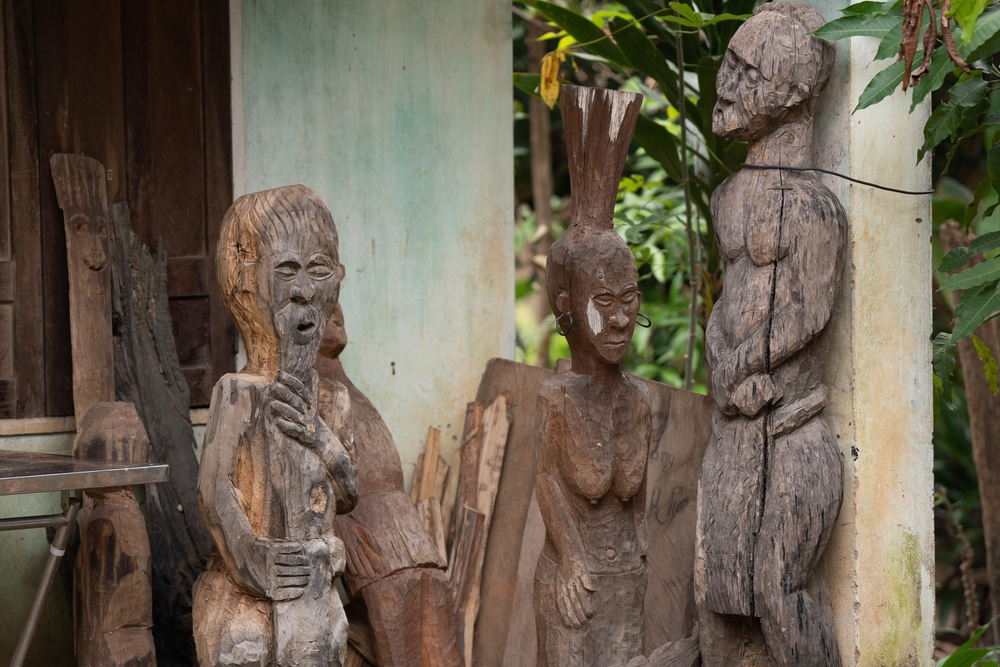
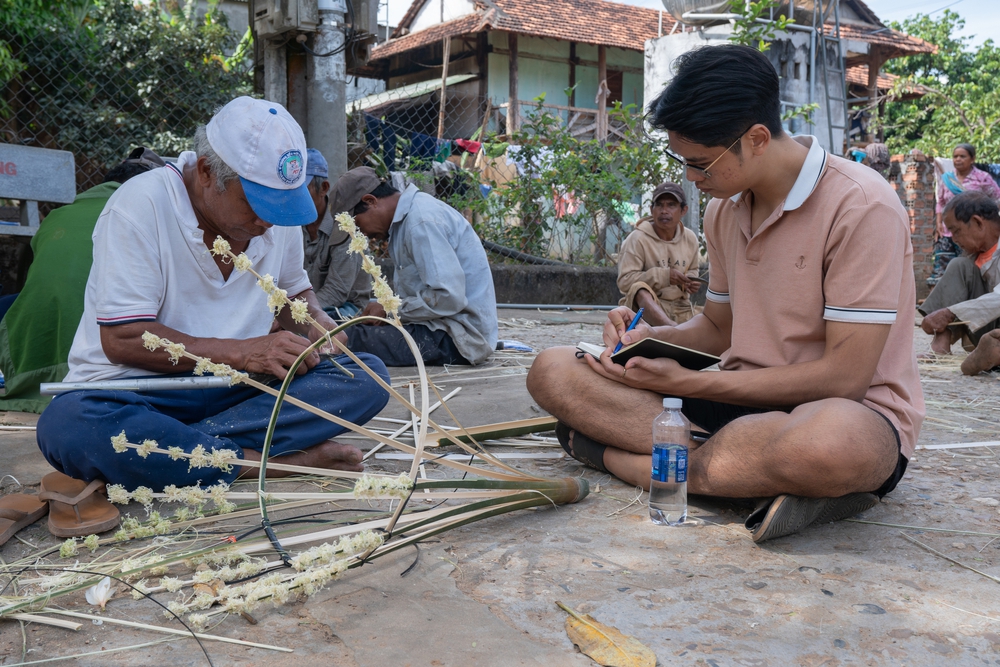
Part 3
Goals and vision of the project
With the mission of building a comprehensive language preservation program for the Bahnar people, the project sets forth the following goals and vision:
Goals
The "Bahnar Language and Culture Preservation Project" aims to preserve the Bahnar language as a critical foundation of cultural heritage while leveraging it to promote environmental sustainability. The project seeks to empower the Bahnar people by recognizing them as environmental experts rather than mere recipients of charitable aid. It aspires for Vietnam and the world to equally value and respect the contributions of ethnic minorities as much as other communities.
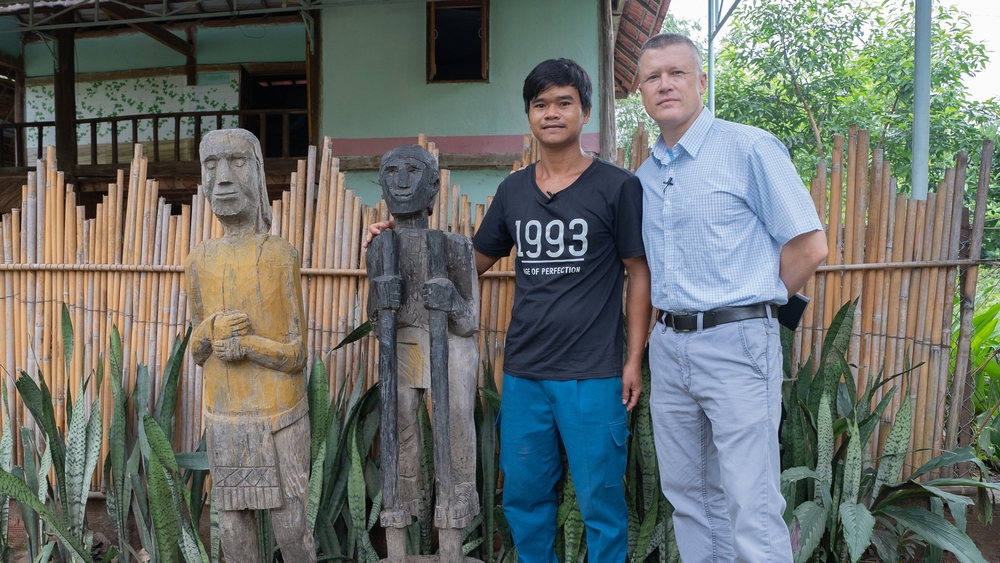
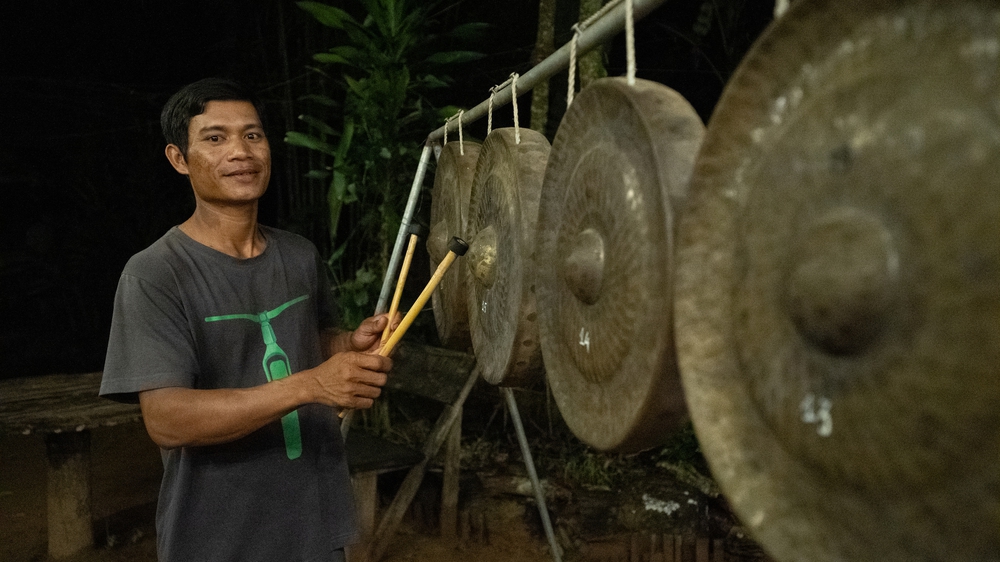
Vision
The project envisions a future where indigenous languages and cultures are preserved and thrive, with their environmental knowledge playing a vital role in addressing global challenges. This contributes to building a world where all cultures are respected, and the insights of ethnic minorities about nature and sustainability are integrated into broader global solutions.
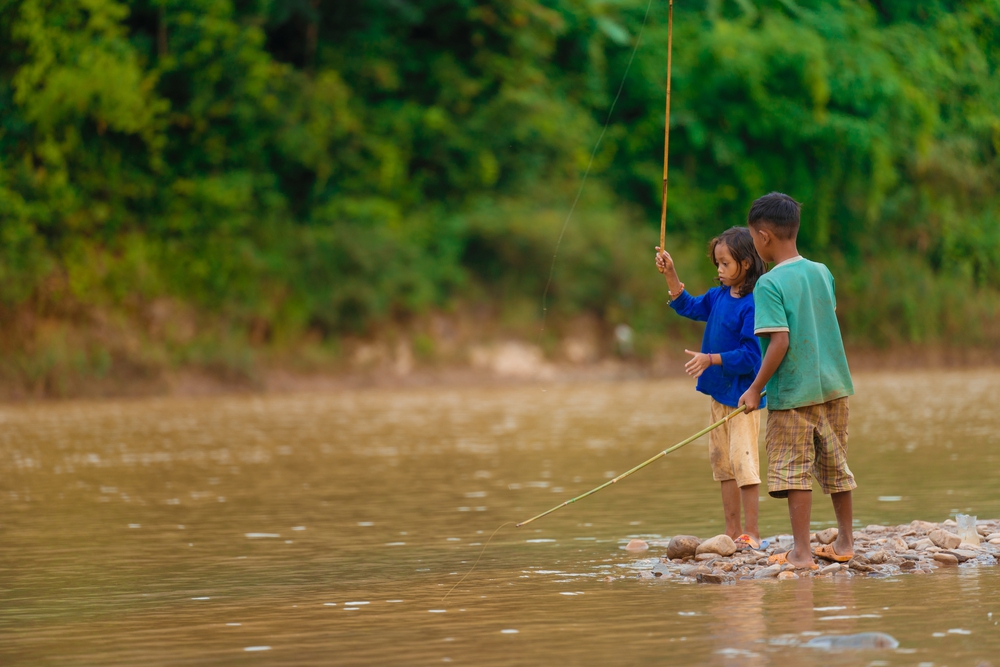
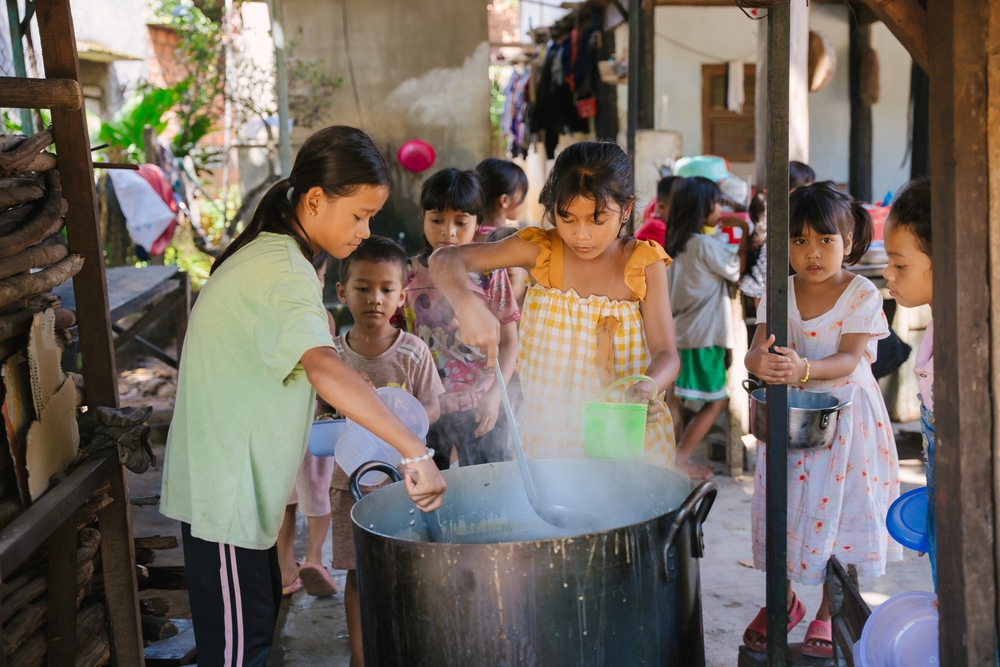
Part 4
Implementation - Scope - Cost of the project
Implementation
The project is implemented in three main phases:
Phase 1 - Documentation and Language Revitalization: Conduct field research to document the Bahnar language in both written and oral forms. This includes recording traditional stories, songs, rituals, and daily language use. Develop a Bahnar Spoken Dictionary as an output.
Phase 2 - Knowledge Exchange and Environmental Education: Integrate knowledge of the local ecosystem (forest management, medicinal plants, and sustainable farming methods) into environmental science curricula. Collaborate with Bahnar experts as co-researchers in environmental studies, contributing their knowledge of biodiversity, conservation, and climate adaptation.
Phase 3 - Capacity Building and Empowerment: Develop a training program for young leaders in the Bahnar community, equipping them with skills to advocate for their cultural and environmental rights at both national and international levels.
The project also includes policy advocacy and community awareness initiatives, such as partnering with the Department of Culture, Sports, and Tourism of Kon Tum Province. These efforts aim to support the documentation of endangered languages and cultural heritage preservation. Additionally, the project leverages media, public presentations, and digital tools to raise global awareness about the Bahnar people.
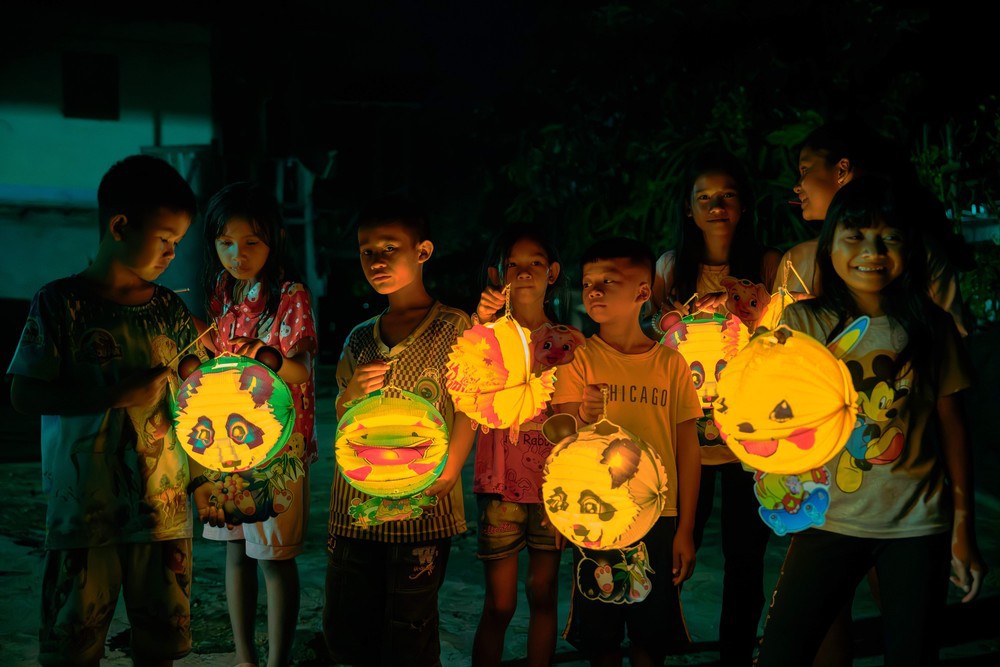
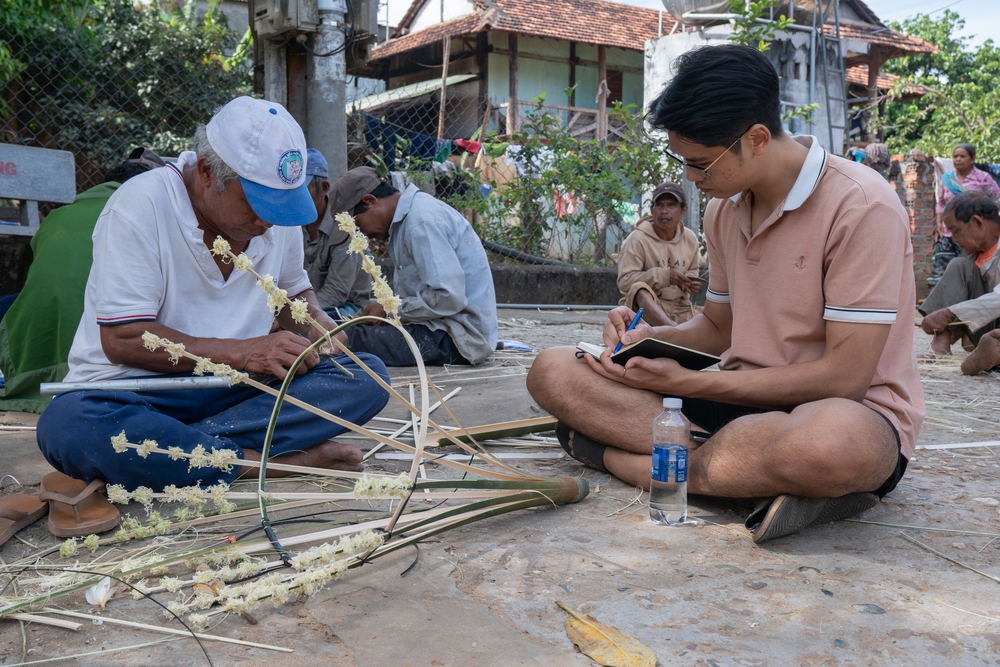
Scope
Local Impact - Bahnar Community:
- Cultural Preservation: Safeguard Bahnar language and traditions through education, documentation, and community-led initiatives.
- Economic Empowerment: Foster sustainable economic opportunities through ecotourism and leadership training, ensuring financial benefits for the Bahnar community from their cultural and environmental knowledge.
- Environmental Stewardship: Incorporate Bahnar knowledge into local conservation efforts to protect biodiversity and natural resources in the region.
National Impact - Vietnam:
- Educational Reform: Introduce indigenous knowledge and perspectives into the national education system to foster greater appreciation for cultural diversity.
- Environmental Policy Influence: Shape national discussions on climate change and sustainable development by including Bahnar people and environmental experts.
- Community Awareness: Challenge stereotypes about ethnic minorities in Vietnam.
- Elevate the role of the Bahnar and other indigenous communities in environmental preservation and cultural heritage conservation.
Global Impact:
- Contribution to Global Science: Position the Bahnar as co-authors and partners in scientific research, incorporating their environmental expertise into global discussions on biodiversity and climate change.
- Language Conservation Model: Establish a replicable model for language preservation that can be applied to other endangered languages worldwide.
- Cultural Diplomacy: Enhance Vietnam's international reputation as a country that values and protects its rich cultural heritage.
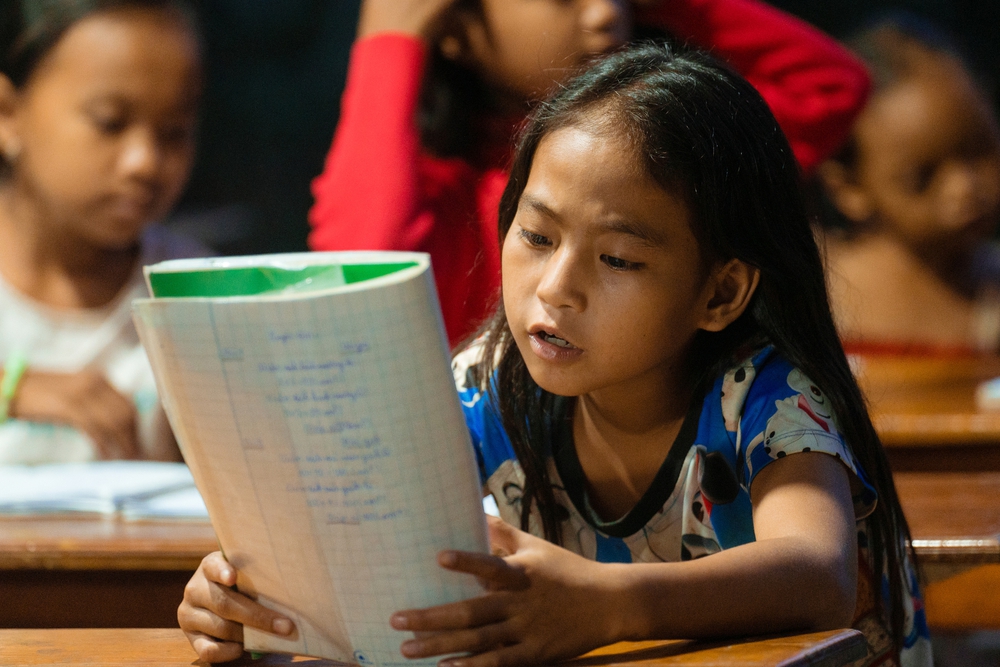
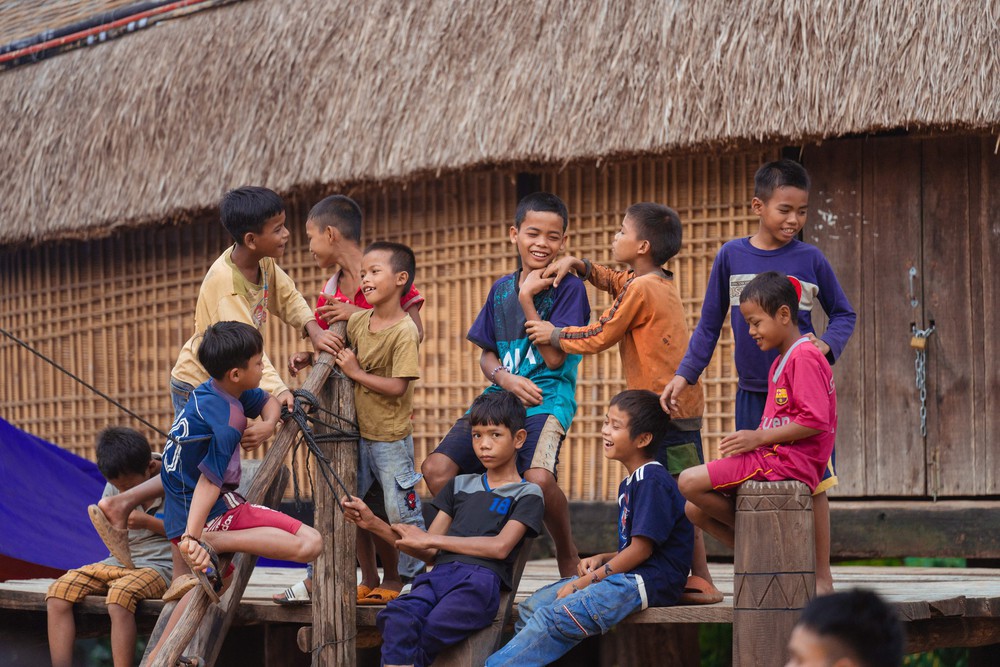
Part 5
Achievements
The project has garnered strong support and participation from both the Vietnamese and international communities: Over 200 individuals (students, faculty, and community members) have directly participated in the project, including ethnographic experts and international audiences. Collaborative research with Bahnar experts has been highly valued, amplifying the voices of indigenous experts in academic literature.
Development of Scientific Research and Publications: Over 15 research papers and projects have been co-authored with Bahnar leaders, contributing to global environmental studies. Three university projects funded and successfully completed, showcasing student leadership in multicultural environmental research. A Bahnar Spoken Dictionary has been developed, serving as a critical scientific resource for scholars and the Bahnar community alike.
Positive Economic and Policy Impacts: Sustainable ecotourism initiatives are under development, positioning the Bahnar community as leaders in environmentally responsible tourism, which also provides economic benefits. The project has advanced recognition of the role of indigenous communities in shaping national environmental policy discussions.
On October 9, 2024, VinUniversity officially became Vietnam's first UNESCO Chair under a model of research and training. The cultural and linguistic preservation project for ethnic minorities is one of the flagship initiatives for the 2024–2028 period.
Positive Impacts on Education: Over 25 students have been trained in ethnographic and cross-cultural methods, gaining practical experience that enhances employability and global competencies.
Students have developed skills for postgraduate studies, careers in sustainability, and leadership roles in global initiatives.
Part 6
Model expansion potential
The project "Preserving the Bahnar Language and Culture" adopts the 3P model to develop its potential for scaling. Specifically:
P-RODUCT – Products: Develop high-tech products to bring the Bahnar language and culture closer to the public in Vietnam and worldwide, such as virtual museums (metaverse), spoken dictionaries, etc.
P-ROCESS – Process: Standardize the process to expand the model of language and cultural preservation to other ethnic minorities. Share experiences with universities interested in implementing similar projects.
P-ARTNERSHIP – Partnership: Promote collaboration between universities and indigenous communities to enhance scientific exchange potential. Increase opportunities for minority communities to access knowledge.
This will drive the project's potential for expansion, not only within the country but also towards global scalability.
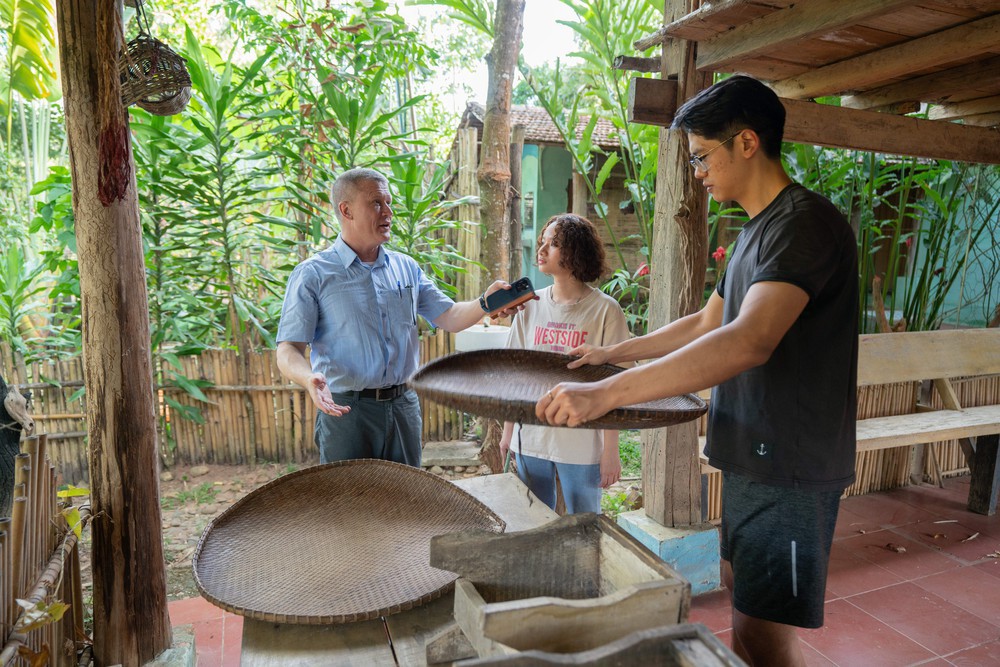
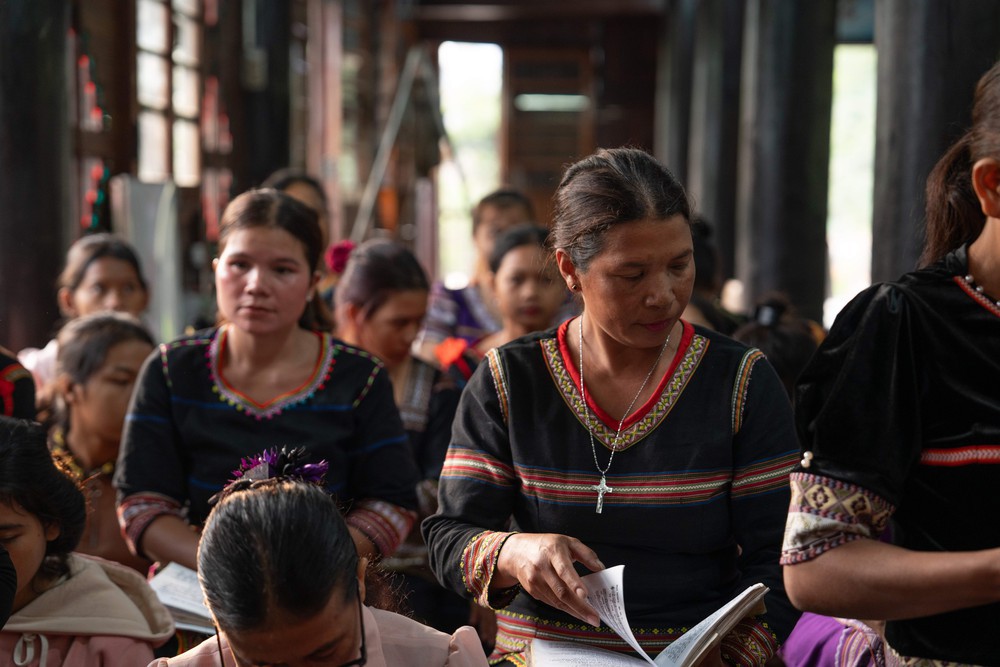
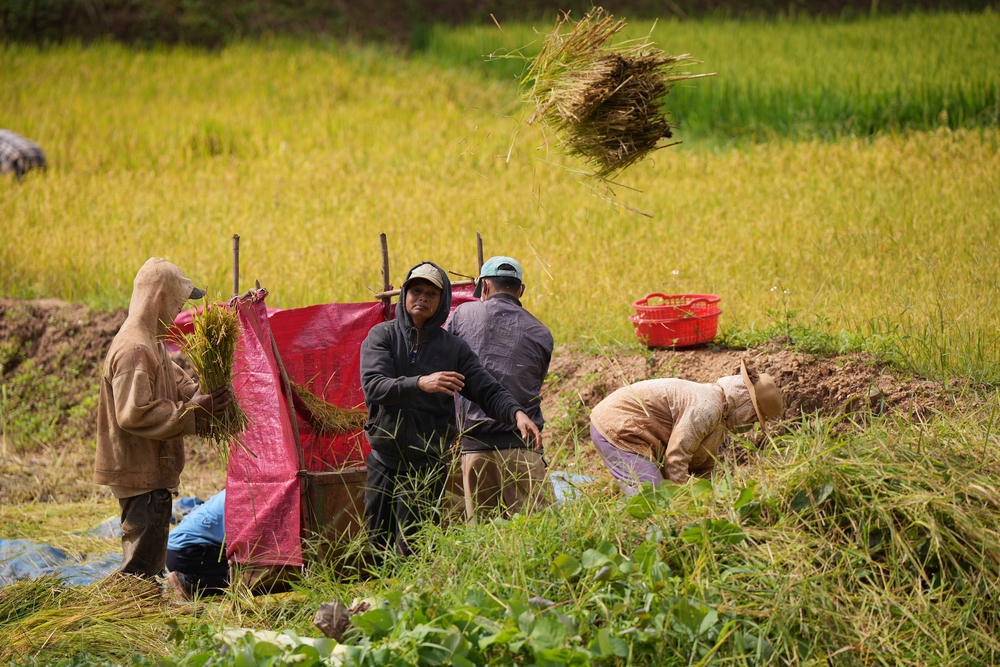
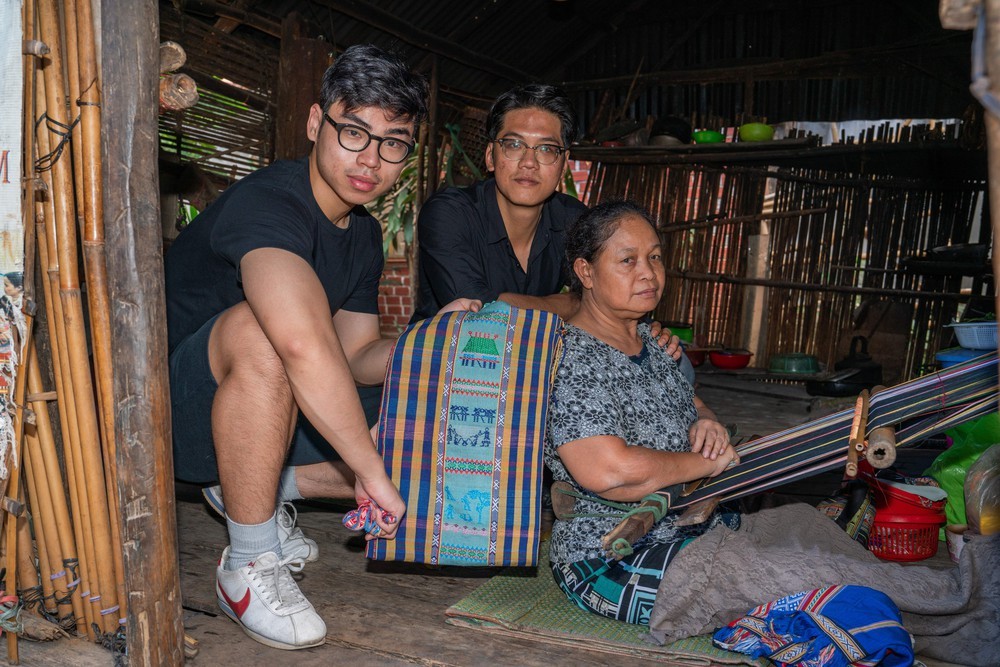
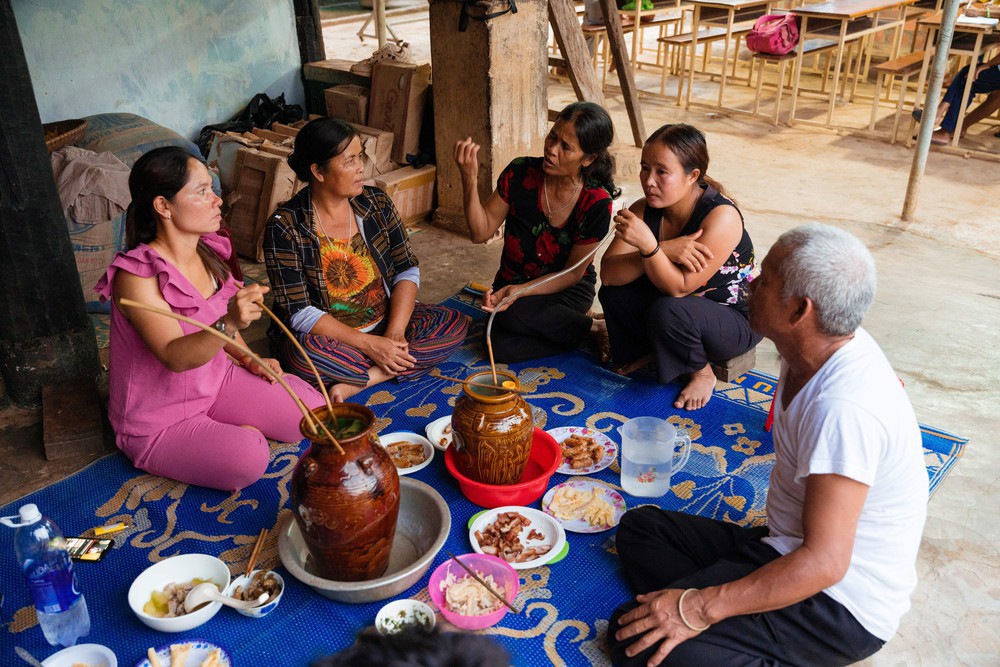
The images, videos, information and data about the project published on this landing page (project information page) are provided by the individual/organization who registered to participate in the award and are responsible for the copyright and legitimacy under the law.
